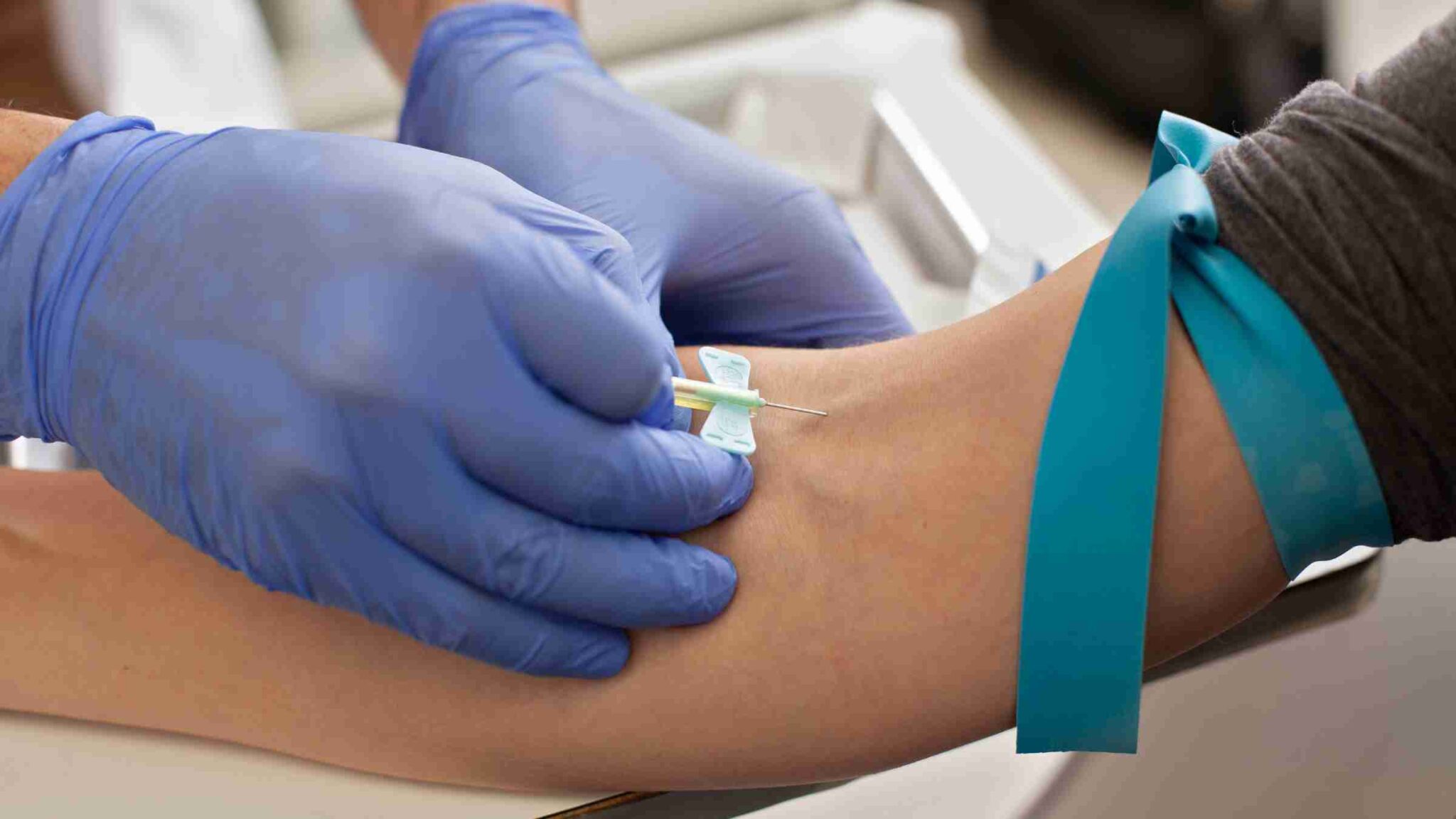- 1. What do stats say?
- 2. Understanding Appium and its Role in Mobile App Tests
- 3. Why Testing Mobile Gestures?
- 4. Appium: The Dynamic Tool for Gesture Testing
- 5. Basic Understanding of LambdaTest
- 6. Mobile Gestures Testing with Appium
- 7. Advantages of Using LambdaTest for Testing Mobile Gesture with Appium
- 8. Final Verdicts
- 9. Frequently Asked Questions (FAQs)
In the high-tech world, mobile apps have become a crucial part of our daily lives, providing a wide range of solutions. With users expecting flawless and intuitive experiences, mobile gesture testing is crucial to guarantee your app’s performance and user satisfaction. Appium, an automation framework, streamlines the mobile gestures testing procedure. When combined with LambdaTest, an AI-powered test orchestration and test execution platform that provides a mobile device lab, you can boost your gesture testing.
What do stats say?
As per Statista, the returns of mobile applications worldwide are predicted to experience enormous growth in every single segment in the year 2027. As part of the new-edge trend, the returns hit a higher value for all 21 distinct segments at the end of the contract period. Particularly, the Games section leads the way with the best income, reaching a significant 352.1 million U.S. D. This immense growth reflects the highest demand for mobile applications and the diverse series of offerings in the application market. As such, the mobile application vertical is poised for sustained success in the upcoming decades.

To ensure these apps are error-free and user-friendly rigorous testing with Appium is crucial. Mobile gestures are a critical portion of the user experience in mobile apps. Whether it is pinching, swiping, tapping, or any additional gesture, they allow users to relate to applications intuitively and pleasingly. Testing such mobile gestures is crucial to make sure that the particular mobile application works as intended and gives a faultless user experience.
Understanding Appium and its Role in Mobile App Tests
Appium is a top-notch open-source for checking the complete performance of all UI components present in an advanced mobile app. While utilizing Appium, mobile app developers can initiate test cases on the plethora of apps such as hybrid apps, native apps, and mobile-centric web applications.
Appium utilizes a JSON wire protocol that is alike the Se (Selenium) JSON protocol. It also supports all standard mobile platforms such as Windows, Android, and iOS. The app developers can also incorporate this tool with other common test automation frameworks and platforms for added features. While using this tool, it is also possible to commence parallel configuration to execute multiple test examples on varied systems simultaneously.
Why Testing Mobile Gestures?
Mobile gestures are a crucial portion of the mobile user experience. Gestures enable consumers to navigate, interact, and execute activities within an application. Testing such gestures is essential for the following reasons:
- Functionality: Gesture-based deeds are sometimes core functionalities of applications. Testing them authenticates the mobile application’s prime traits.
- User Experience: Confirming that gestures function appropriately boosts the overall user experience and pleasure.
- Error Identification: Gesture-linked flaws like accidental taps or unresponsive swipes, could be tough to identify without correct testing.
- Compatibility: Gesture-related Testing across multiple devices & screen sizes guarantees compatibility with an extensive user base.
Appium: The Dynamic Tool for Gesture Testing
It is an extensively used open-source tool for automating apps on both iOS and Android platforms. Appium supports a series of gestures, making it a brilliant option for mobile app testing. Let’s take a look at a few gestures that Appium supports:
- Swipe: Dragging a finger through the screen in a definite direction.
- Scroll: Scrolling a precise list or page.
- Tap: A single tap on a screen component.
- Double-tap: Two fast taps on a screen component.
- Drag and drop: Dragging a component and dropping it in a different location.
- Press and hold: Tapping & holding an element of the screen for a particular duration.
- Pinch and zoom: Making use of two fingers to zoom out or in.
Basic Understanding of LambdaTest
Real device testing is one of the most crucial parameters to guarantee the constancy of an application’s physical traits. Yet, the procedure to set up, configure, and continue a real device test bench is arduous and costly.
Therefore, software developers can replace this approach with the assistance of cloud-centric solutions. AI-powered test orchestration and test execution platforms such as LambdaTest enable mobile app developers to attain similar test outputs while executing real device testing on remote servers (accessed via the Internet). Some other advantages comprise the elimination of geolocation obstructions and the insertion of legacy devices.
LambdaTest is a premium cloud-centric test platform for web apps, with the aid of automated cross-browser testing, mobile application developers can ensure the reliability of the app despite modifications in the browser version, operating system, or device parameters. This platform uses parallel test implementation to enormously uplift the effectiveness of the test cases.
When working with LambdaTest, the developers can run the automated test files from several test suites and test frameworks such as Playwright, Selenium, and Cypress. While implementing Selenium test cases, this platform can perform it on more than 3000+ simultaneous browser cases. Ultimately, the incorporation of test reports from 1000s of emulation software and 100s of real devices accelerate the test cases’ accurateness.
Mobile Gestures Testing with Appium
Before we deep dive into mobile gestures testing with Appium on LambdaTest, we need to comprehend why it’s essential:
1. Cross-Platform Compatibility: Mobile applications must perform reliably across diverse operating systems and devices. Mobile gestures testing on multiple platforms helps maintain stability as well as consistency.
2. Enhanced User Experience: Mobile gestures are the prime mode users communicate with mobile applications. Certifying that gestures function appropriately improves the overall user experience.
3. Functionality Testing: Several application traits depend on mobile gestures like swipe gestures to navigate content or pinch-to-zoom for images. Appropriate testing confirms that such traits work as intended.
4. Error Detection: Gesture-related flaws or glitches can result in frustrating user experiences. Comprehensive testing assists in detecting and mitigating such complications and issues, enhancing mobile app steadiness.
Testing Mobile Gestures with Appium on LambdaTest
LambdaTest is a cloud-centric test platform that provides an extensive series of real browsers and devices for testing mobile and web apps. To test gestures via Appium on LambdaTest, you have to follow these phases:
- Set Up Your Account in LambdaTest:
- Sign up for an account in LambdaTest if you do not have one.
- Get your LambdaTest Access Key and Username from the Automation Dashboard ( LambdaTest).

- Install Appium:
You need to install the latest version of Appium on your PC or use LambdaTest’s cloud-centric Appium installation.
Appium Installation is as simple as implementing a single NPM command:
npm i –location=global appium
This command aids in Appium installation on your system so that you can access it globally from the command line easily by impending the Appium command. Progress and run it now:
appium
- Create Your Test Scripts:
Write test scripts via your most preferred programming language (Tools like Appium supports manifold languages, comprising JavaScript, Python, and Java).
- Configure Desired Capabilities
In your test script, you need to mention the desired capabilities, containing the platform, device name, and LambdaTest-particular data (like LambdaTest’s Hub URL).
DesiredCapabilities capabilities = new DesiredCapabilities();
capabilities.setCapability(“platformName”, “Android”);
capabilities.setCapability(“platformVersion”, “11.0”);
capabilities.setCapability(“deviceName”, “Samsung Galaxy S21”);
capabilities.setCapability(“app”, “lt://your-app-id”);
capabilities.setCapability(“lt_app_name”, “Your App Name”);
capabilities.setCapability(“lt_test_name”, “Your Test Name”);
capabilities.setCapability(“build”, “Your Build Name”);
capabilities.setCapability(“tunnel”, true);
capabilities.setCapability(“username”, “your-lambdatest-username”);
capabilities.setCapability(“accessKey”, “your-lambdatest-access-key”);
- Implement Your Tests
Execute your Appium test scripts on LambdaTest’s real-time devices. Cloud-based platforms like LambdaTest will run the testing and offer comprehensive test logs and outcomes.
- Analyze Test Outcomes
After test implementation, scrutinize the test outcomes to detect and resolve any glitch linked to mobile gestures. LambdaTest offers all-inclusive test reports, screenshots, and logs to help you in this procedure.
- Parallel Testing (Optional)
To accelerate the entire testing procedure, you can execute gesture testing in parallel across various gadgets. LambdaTest also provides parallel testing capabilities, letting you save extra effort and time and hence increase effectiveness.
By following such important steps, you can successfully test mobile gestures utilizing tools like Appium on a cloud-centric platform like LambdaTest. This approach streamlines the complete test approach and gives access to an extensive series of real devices for detailed gesture testing.
Advantages of Using LambdaTest for Testing Mobile Gesture with Appium
- Access to Real-time Devices: LambdaTest provides a huge collection of real-world devices, letting you test your mobile application on an extensive set of tablets and smartphones.
- Cloud-Centric Testing: You do not need to set up emulators or physical devices. LambdaTest’s cloud-centric platform manages the device infrastructure. This results in reduced maintenance efforts, cost savings, and access to the most modern mobile devices.
- Parallel Testing: You can easily run gesture testing in parallel across multiple devices to save extra time and accelerate the test process.
- Detailed Reporting: LambdaTest gives all-inclusive test logs, reports, and screenshots to help you recognize and resolve problems rapidly.
- Synchronization with Appium: LambdaTest flawlessly incorporates the test frameworks like Appium. One could easily configure desired capabilities in your Appium scripts to execute testing on LambdaTest’s mobile devices without difficulty.
- Scalability: Whether you have a big giant or small team, LambdaTest is flexible to meet your software testing necessities. You can select the pricing plan that meets your specific requirements.
Final Verdicts
Testing mobile gestures is one of the critical aspects of confirming your mobile app’s functionality, performance, and user experience. Using Appium on the cloud-based LambdaTest platform organizes the entire testing process and gives access to a vast collection of real-time devices. This combination enables you to find and resolve gesture-connected issues proficiently. Make certain your mobile application’s success by testing its gestures comprehensively, and consider LambdaTest for a smooth testing experience.
Ready to get started? Sign up now and enhance your mobile app’s complete quality.
Frequently Asked Questions (FAQs)
- Why mobile gesture testing is significant for mobile app development?
It is essential because they are important to the user experience. Users expect applications to react promptly and perfectly to their gestures. A better user experience is crucial for retaining consumers and ensuring the app features functionality that relies on gestures.
- How does Appium streamline mobile gesture testing?
Appium is a top-notch open-source mobile automated testing framework that simplifies gesture testing by offering a user-friendly Application Programming Interface, support for native gestures on iOS and Android, touch actions for intricate connections, and the capability to execute tests on real-world emulators and devices.
- Can LambdaTest’s mobile device lab be incorporated into CI/CD pipelines?
Yes, its mobile device lab can flawlessly incorporate Continuous Integration/ Continuous Delivery pipelines, letting test automation at each phase of the software development process. This allows continuous testing and guarantees application stability.
- What are the challenges of testing mobile gestures, and how can they be addressed?
Challenges in testing mobile gestures comprise coping with varied device forms, screen sizes, and OSs. Such challenges can be addressed by using cloud-centric test platforms such as LambdaTest, which offer access to an extensive choice of real-time devices for testing.
- What forms of mobile devices are accessible in LambdaTest’s mobile device lab?
LambdaTest provides an extensive range of real mobile devices, counting mobile phones and tablets, to provide all-inclusive test coverage. You can test on numerous devices with diverse resolutions and screen sizes.







